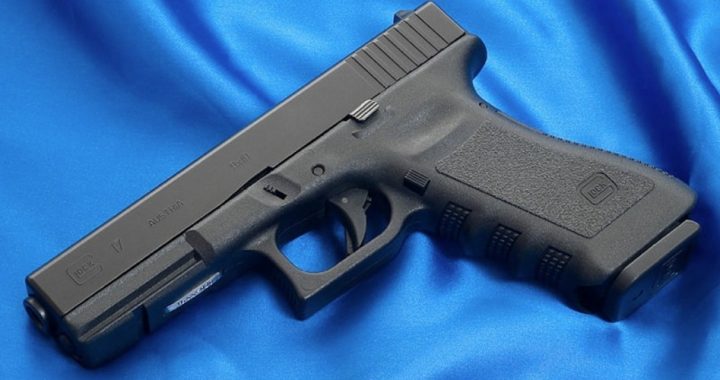
NEW YORK — On the second day of the United Nations Arms Trade Treaty (ATT) conference, the delegations of several European nations seemed determined to prohibit the government of any nation from violating any regulations imposed as a part of the ATT.
Switzerland took the lead on this effort to revise Article 3 of the proposed gun control agreement. The Swiss delegation was joined by several cosponsors in attempting to re-write the current version of Article 3 so as to more rigorously regulate the transfer of weapons that could be used for attacks on civilians.
As readers will understand, such vague terms as “weapons that could be used for attacks on civilians” could easily be interpreted to include nearly every variety of firearm whose ownership is protected by the Second Amendment.
When confronted about this potential infringement on the right to keep and bear arms, U.S. officials at the conference are quick to point out that Secretary of State John Kerry has committed to refusing to ratify any agreement that constricts the sphere of the Second Amendment’s protection of gun rights.
As the negotiations on the revision of Article 3 wound down, the Canadian delegation was arguing for the status quo, insisting that the current version of the provision is likely as comprehensive as possible to still garner ratification by a majority of member states.
As the negotiations and presentations proceed, it becomes evident that many of the articles being drafted (or revised) contain provisions that would require the governments of member nations to track the transfer of weapons and ammunition within their sovereign borders.
One crucial step to implementing such tracking is the creation of a registry of gun owners. Without such a registry, it would be impossible to monitor weapon transfers effectively because governments can’t track weapons exchanges and transfers unless they know who has them to begin with.
Americans need to be aware that the trajectory toward the mandatory compilation of a gun owner registry is in the works here at the United Nations.
One can imagine the scenario if such an article makes it into the final version of the treaty, which is scheduled to be presented for ratification next Thursday.
Secretary Kerry and his fellow bureaucrats would insist that they tried valiantly to oppose the domestic tracking of gun transfers, but in the end, they decided to vote in favor of protecting the safety of citizens and preventing any further violence using guns, such as that witnessed in Newtown, Connecticut.
There is precedent for incremental disarmament that begins with a gun owner registry that in turn was deemed a reasonable reaction to an armed massacre of innocents.
In the United Kingdom, for example, in 1997 the government passed the Firearms Act in the wake of the murder of 16 students and a teacher at an elementary school in Dunblane, Scotland, the year before.
The perpetrator of the Dunblane massacre used two Browning Hi-Power 9 mm pistols and two Smith & Wesson .357 Magnum revolvers. As a result, the ban began with the creation of a mandatory registry of all pistol owners. Finally, the Firearms Act of 1997 imposed a nearly absolute ban on the private ownership of handguns in the United Kingdom.
The previously compiled ownership registry was used by the Police Firearms Licensing Office to track down all those who had not complied with the mandatory surrender of handguns.
Once identified, all those gun owners who had previously refused to hand over their handguns were threatened with arrest for violation of the Firearms Act.
Americans familiar with this recent episode in British history could foresee a similar track being followed by our own federal agents.
First, there would be a registry imposed under the pretext of following international law as set out in the Arms Trade Treaty. On this point, is there any doubt that proponents of the registration of gun owners would feign frustration with the need for such a registry, but would nonetheless point to the so-called Supremacy Clause of Article VI as constitutional justification for the taking of names?
Finally, all Americans rebellious enough not to voluntarily drop off their handguns at the local police precinct (or Homeland Security Fusion Center) would receive notices in the mail informing them that they had broken the law, and that they would be granted a 30-day grace period to fall into line or face fines, imprisonment, or both.
Advocates of the Second Amendment should be aware that there are ample lessons in very recent history wherein high-profile mass murders were used as a pretext for the creation of a gun owner registry, which was in turn followed by confiscation. All, it should also be remembered, in the name of national security and the safety of all men, women, and children.
The disarmament of Britons is the latest, but it is not the only example of violence leading to registry, leading to seizure of privately owned weapons.
As The New American reported recently, riots and murders that tormented Germany following the end of World War I were used by government officials to justify the banning of “military type weapons.” Year by year, the list of proscribed firearms grew, and the methods of enforcement grew more severe. The disarmament progressed until civilians were completely robbed of all rights of gun ownership, leaving them powerless to resist the rise of the Third Reich.
There are many Americans who refuse to believe that disarmament is the goal of those who are pushing for stricter and stricter gun laws. They assume that decreasing liberty is a fair price to pay for increasing safety.
This is naïve. History reveals that failure to monitor and oppose every movement — even small, seemingly insignificant, incremental ones — toward gun owner registry will result in outright confiscation. And history’s ultimate and final lesson is that a disarmed society is a slave society, one powerless to oppose the brutal forced march toward tyranny.
Related Articles:
UN Arms Trade Conference Begins, Sec. General Calls for “Robust” Treaty
UN Arms Trade Treaty: National Lists of Gun Owners; Ammunition Regulation
Joe A. Wolverton, II, J.D. is a correspondent for The New American and travels frequently nationwide speaking on topics of nullification, the NDAA, and the surveillance state. He can be reached at [email protected].



